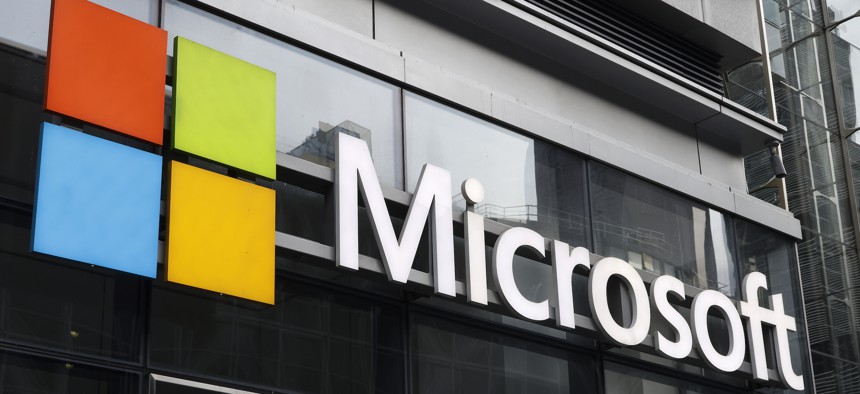Microsoft launches ‘first in a series’ of updates to its federal Azure OpenAI capabilities

Gary Hershorn/Getty Images
Customers with an Azure Government account will be able to use more advanced generative artificial intelligence features within Microsoft and OpenAI’s partnership.
Microsoft is launching new generative artificial intelligence features within its government software products, with an updated version of OpenAI’s ChatGPT AI software along with other machine learning apps that will now be available for federal workers using Microsoft’s Azure Government platform. Announced by the company on Tuesday, officials said Azure OpenAI Service will offer users more data analytics capabilities within Azure Government’s existing suite of AI tools.
“When we think about this release, it’s really the first of a series that Microsoft is going to be making this year based on the commitment that we have to bring the best of AI capabilities forward,” a Microsoft representative told NextGov/FCW ahead of the announcement.
Improving how federal employees can derive insights from existing and new data is the key objective of Microsoft’s Azure OpenAI Service update. Use cases vary, but federal customers that stand to benefit the most from the Azure Government update work within scientific, research and defense intelligence-focused agencies.
This newest iteration of Azure’s partnership with OpenAI’s ChatGPT and other AI tools — which formally launched in the summer of 2023 — is part of a larger “roadmap,” and, the representative said, in the coming months the company will unveil more updated features to its Azure AI platform, including low-code and no-code solutions and cloud capabilities.
By fall, Microsoft aims to bring these solutions to Azure secret and top secret environments, focusing on growing demand in the defense and intelligence spaces within the U.S. government. Other applications include acquisition and project management, cybersecurity and improved user experience assistance with chatbot tools.
Given the sensitive nature of Azure Government’s projects, in conjunction with the sophisticated generative AI capabilities, Microsoft said it will aim to move in lockstep with the White House’s October 2023 AI executive order, which, among other things, prioritizes data privacy and security in large language models.
“When we bring these models, both in the commercial environment and in the government environment, we stand on the foundation that Microsoft runs on trust and transparency,” the representative said. “And so fundamentally, at the end of the day, customer data is customer data and is wholly their data.”
Federal agencies will be able to request access to “experiment and evaluate” the use of generative AI software in a variety of use cases. When approved, a notification will be sent that grants a user access with an existing Azure Government subscription.
Editor's note: This story was updated to better describe Microsoft's AI tools.






